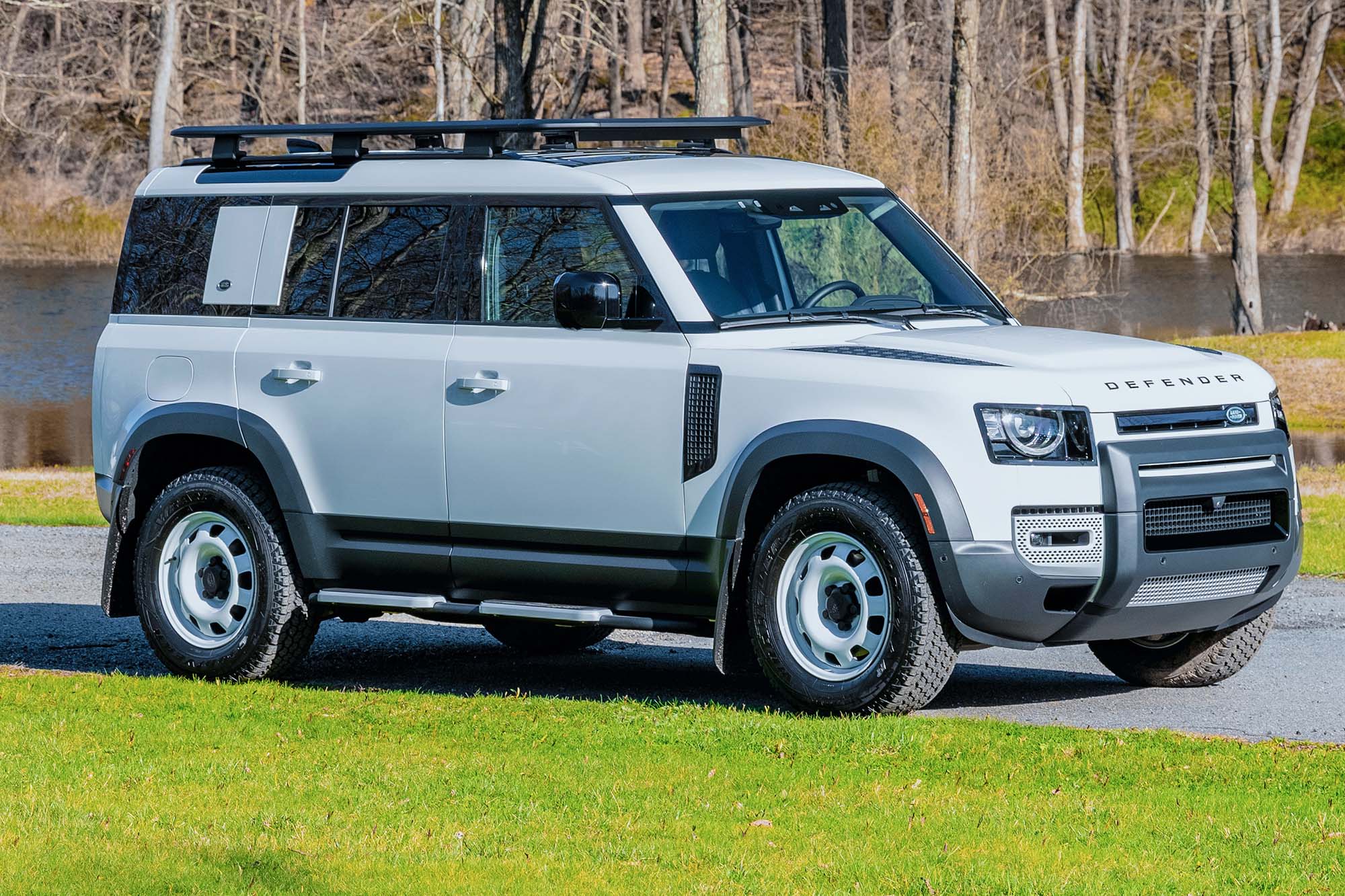How Steel Wheels Became Cool
Once overshadowed by sleek alloys, steel wheels have found a new following.
 Land Rover
Land Rover
Automotive trends bear some similarity to fashion cycles. Concepts, styles, and silhouettes all appear and recede from the zeitgeist with dizzying regularity. This is true even for formerly ridiculed styles, like the "mom jeans" of the 1990s that have recently gone from frumpy to fabulous. The automotive world is now witnessing a similar evolution, by way of basic steel wheels, affectionately known as steelies.
Steel Wheels Were Eclipsed by Alloys in the '80s
Though wheels made of metal date back to the earliest days of the automobile, the now-familiar drop-center, pressed steel wheel did not appear until the mid-1930s. These were standard across the industry and differentiated by their slots, patterns, or hubcaps.
Lighter-weight wheels made of an alloy, a mixture of metals such as magnesium and aluminum, actually came into existence relatively early on the car's timeline. But until the late 20th century, they were generally reserved for race cars or other high-performance models.
As imported vehicles infiltrated the market in the '80s, the alloy wheel became a differentiator signifying higher performance capability. As a desire for more distinctive features became pervasive throughout the industry, the alloy wheel then trickled down to become nearly standard. Steel wheels became the province of cheap rental cars or other stripped-down models such as law enforcement or park ranger vehicles.
Steelies are Making a Comeback
In the contemporary era, however, steel wheels are making something of a comeback. This is particularly true in the category of off-road ready SUVs. The Land Rover Defender, Jeep Wrangler, and Ineos Grenadier are all available with steel wheels. Prospective buyers should note that Ford nixed the Bronco's base trim — and with it, the steel wheels option — for the 2024 model year. That said, thanks to companies such as
There's even a Facebook group dedicated to the subject. Called Every Car Is Better With Steel Wheels, it now counts more than 37,000 members from around the world.
"There's a ton of off-roaders and truck guys who choose steel wheels," said Brett Evans, one of the group's moderators. "But then there are people who just have these relatively humble, normal, workaday cars who say, 'Hey, look at my car with steel wheels.'"
Utility and Standing Out are Among the Appeals
What's driving this relative resurgence in popularity? There seem to be a few different, and sometimes overlapping, factors.
The first revolves around simplicity and functionality.
"Steel wheels have a lot of utilitarian appeal," Evans said. "They're a little more durable. They're a little bit easier to repair. You can heat up a steel wheel and put it back to round much more easily than you can an alloy. And so, just in terms of everyday usability, you hit a pothole and you don't need to buy a whole new wheel."
Not that everyone who outfits their vehicle with a pair is actually planning to repair a bent wheel trailside.
"It's more about kind of achieving that vibe," Evans said.
Moreover, as storied nameplates have matured and gone upmarket, they've sometimes distanced themselves from their original intent and spirit. As stout off-roading vehicles such as the Bronco, Wrangler, and Defender have seen their features, amenities, and prices increase, their authenticity can sometimes be called into question.
According to Evans, steel wheels may also be "a callback to these vehicles' more utilitarian, simpler past."
He added: "I think it might be the easiest way for a modern car to harken back to its roots."
The other, potentially intersecting motivator is based on making a car one's own. Evans describes a broad variety of group members' rides, including a 1990s Lexus sport sedan, a 1960s Volvo station wagon, and a 1980s Cadillac Fleetwood luxury barge. The steel wheels they all sport, typically coupled with big chunky tires, make these cars stand out, according to Evans.
"Rather than just going with the trend of bigger, shinier, flashier" for their wheels, Evans said, these cars are unique, with something of a kind of gruff, no-nonsense aesthetic.
"I think it is differentiation, for sure," he said. "I think people just want to subvert and be a little weird or a little offbeat."
Drawbacks to Steel Wheels Prompt Alloy Look-Alikes
Big, weighty steel wheels still come with the same liabilities that alloy wheels were invented to offset.
"Steel wheels are heavy," Evans said. "They are not good for efficiency. They're not good for performance. They definitely have some drawbacks that you have to acknowledge."
A variety of aftermarket manufacturers are capitalizing on this, by creating lightweight alloy wheels that have the look of old-school steel wheels and offering what may be a best-of-both-worlds solution.
This inauthenticity has riled up some members in Evans' Facebook group.
"It's really funny," he said, "how some people are like, 'Yes, awesome. This is exactly what we want. I want my truck to have real steel wheels, but then I want my sports car to just have that look. And then some people are, like, 'Nope, these are phonies. These are fakes. Like, get out of here.'"
Written by humans.
Edited by humans.
 Brett Berk
Brett BerkBrett Berk is a New York City-based writer who covers the intersection of cars and culture: art, architecture, books, fashion, film, politics, television. His writing appears regularly in top-tier automotive and lifestyle publications.
Related articles
View more related articles